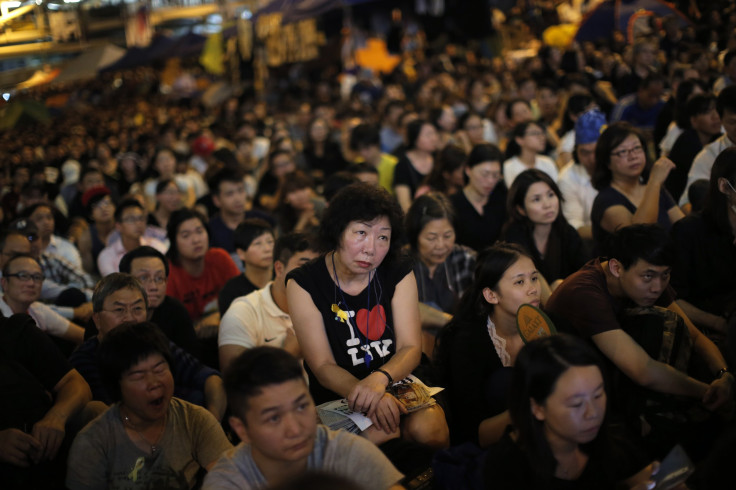Hong Kong Protests 2014: Student Protesters Face-Off With Government In Democracy Debate

Five representatives from Hong Kong’s pro-democracy movement of student protesters debated government officials Tuesday, while thousands watched the face-off on big screens set up at protest sites. Although the two sides did not come to an agreement on how Hong Kong should be governed, many saw the debate as a sign that protests were having some impact.
The Chinese government’s decision to broadcast an unaltered discussion about democracy came as quite a change of tone. Days after protests broke out across Hong Kong in early October, Chinese Foreign Minister Wang Yi spoke in Washington and warned against what the Chinese government called “illegal acts that violate public order.”
The debate was "for the general public to tell the difference between right and wrong, to know whether it is the government or the students who reasons things out,” protest leader Joshua Wong, 18, told the Sydney Morning Herald.
Despite repeated calls from the government to end demonstrations, thousands of protesters continued to flood Hong Kong’s public squares demanding the freedom of a full democratic election in 2017. Their persistence has not gone unnoticed by the government.
"We cannot deny that in the past month, the class boycott started by you and the occupation movement, something huge has happened," Carrie Lam, Hong Kong's chief secretary, said during the debate. "Such a social movement is large-scale and its impact is far-reaching."
Lam was referring to September’s week-long boycott of classes staged by a group of students from the Chinese University of Hong Kong. Students were then joined by pro-democracy activist group Occupy Central, which kicked off weeks of protests demanding “universal suffrage.”
Hong Kong currently operates under the “One Country, Two Systems” principle that China agreed to when the British returned Hong Kong in 1997. The agreement stipulated that Hong Kong would have a certain degree of autonomy, while still being considered part of China. The Chinese government had reportedly promised direct elections for Hong Kong’s chief executive position by 2017. However, in August 2014, China said Hong Kong voters can only choose candidates approved by the government in Beijing.
© Copyright IBTimes 2024. All rights reserved.






















